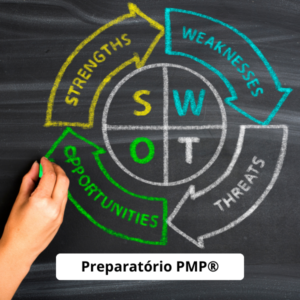Introduction
As the business world continues to evolve, project management is also undergoing significant transformations. Emerging technologies, changing consumer expectations, and increasing pressure for sustainability and social responsibility are reshaping the way projects are planned and executed. The PMI® report (Report 2024 – Maximizing Project Success) provides insights into the key trends and innovations that will shape the future of project management, highlighting how these changes can bring greater efficiency and success to organizations of all sizes.
1. The Emerging Technologies Revolution
One of the biggest innovations transforming project management is the integration of emerging technologies, such as artificial intelligence (AI), automation, and data analytics. These technologies offer new ways to improve efficiency, optimize resources, and predict risks in real-time, enabling more informed decision-making.
- For project professionals: They must be ready to adopt new technologies to optimize their management approaches, using AI to predict risks and automation to streamline repetitive tasks.
- For executives: They need to ensure that technology is integrated into their project management systems, investing in tools that increase productivity and accuracy in project execution.
2. The Popularization of Remote Work and Flexible Collaboration
Remote collaboration and flexible work model have become increasingly common in the project world, especially after the pandemic. With the shift to remote work, communication and collaboration tools have become essential for project success. The ability to work from anywhere offers greater agility and adaptability to market needs.
- For project professionals: They need to be familiar with online collaboration tools and remote team management platforms, ensuring that project teams can work effectively no matter where they are located.
- For executives: They should support and promote flexible work models, creating policies and systems that support remote collaboration and ensure that work quality is not compromised.
3. Sustainability and Social Responsibility as Priorities
In a world that is increasingly aware of environmental and social challenges, sustainability and social responsibility are becoming priorities for many companies. Project management can no longer focus solely on short-term financial results; it must consider the long-term environmental and social impact. Organizations that adopt sustainable practices in their projects not only generate financial value, but also contribute to building a more just and balanced society.
- For project professionals: They must adopt sustainable practices in their projects, considering the long-term environmental and social impact of their decisions.
- For executives: They need to ensure that sustainability and social responsibility are incorporated into the company’s strategic goals, promoting projects that create positive societal impact.
4. The Rise of Agile Management Models
Adaptive (agile) project management continues to gain popularity, especially in fast-changing, dynamic environments such as software development and technological innovation. Agile methods like Scrum and Kanban allow project teams to be more adaptable and respond quickly to changing market and customer needs.
- For project professionals: They should adopt agile methodologies to increase flexibility and improve collaboration among teams. These methodologies allow for quick adjustments and frequent delivery of value.
- For executives: They should support the transition to agile models, promoting a culture of continuous innovation and rapid adaptation to market changes.
Conclusion
The future of project management is exciting and is being shaped by technological innovations, changes in market expectations, and an increasing emphasis on sustainability and social responsibility. Project professionals and executives need to be open to adopting new tools and practices, such as AI, remote work, and adaptive approaches (agile), to ensure that their projects not only succeed in terms of time and budget but also deliver real value and positive impact for society and the environment. By embracing these trends and innovations, organizations will be better prepared to face the challenges of the future and generate lasting results.
Autor
Estude na EG3P®
-
Produto em promoção
 Preparatório Certificação CAPM®O preço original era: R$ 1.999,00.R$ 1.120,00O preço atual é: R$ 1.120,00.
Preparatório Certificação CAPM®O preço original era: R$ 1.999,00.R$ 1.120,00O preço atual é: R$ 1.120,00. -
Produto em promoção
 Preparatório Certificação PMI-ACP®O preço original era: R$ 2.900,00.R$ 2.100,00O preço atual é: R$ 2.100,00.
Preparatório Certificação PMI-ACP®O preço original era: R$ 2.900,00.R$ 2.100,00O preço atual é: R$ 2.100,00. -
Produto em promoção
 Preparatório Certificação PMP®O preço original era: R$ 3.450,00.R$ 2.100,00O preço atual é: R$ 2.100,00.
Preparatório Certificação PMP®O preço original era: R$ 3.450,00.R$ 2.100,00O preço atual é: R$ 2.100,00.


